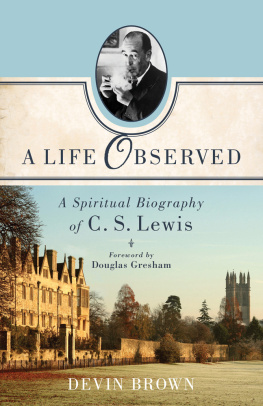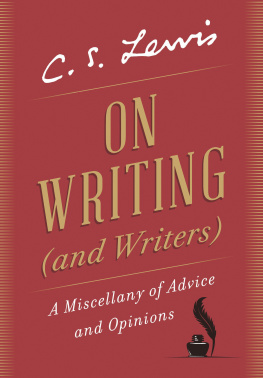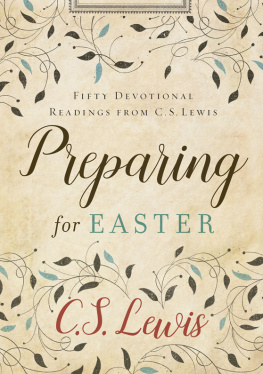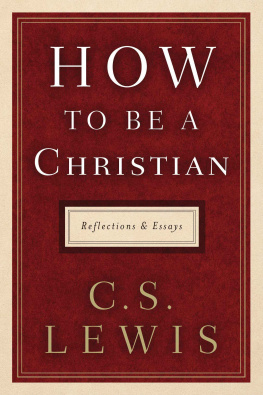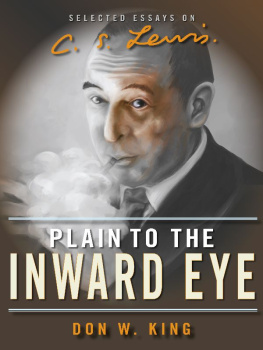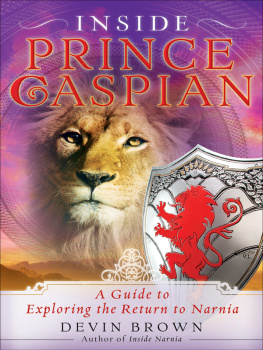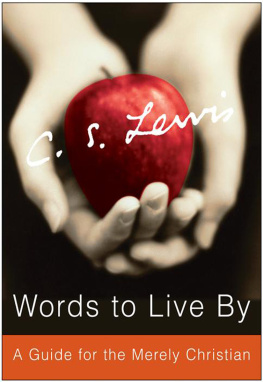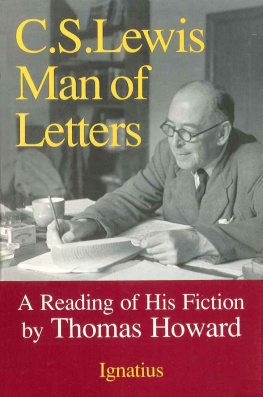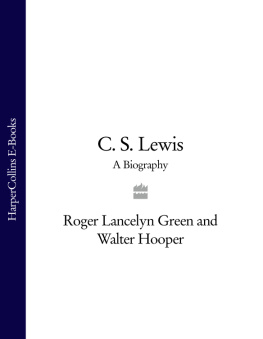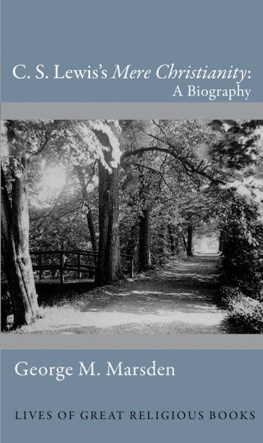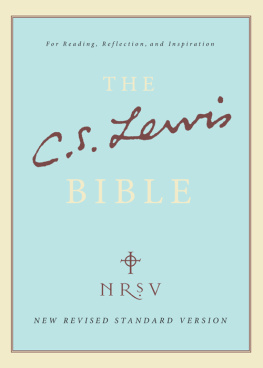It takes a confident man to write a biography of C. S. Lewis and then turn to me for comments. After all, there have been many biographies of Jack already written, including the one I wrote for children. I have said often enough that they vary from the good to the bad to the just plain ugly. Biographies are written for a variety of reasons, and these too vary in the same way: some are written to advance knowledge of the subject and his or her work; others, to advance the biographer in fame and fortune; and still others are little more than attempts to leap on a passing bandwagon. But the biography that follows is different. It has a better, more valuable reason for its existence.
I have more or less given up reading the new biographies of Jack, not so much because of the inaccuracies they containthough there are usually enough of thembut because they are written by people who knew him far less well than I did, if they knew him at all. Their words, speaking only of the good biographies, are the products of much reading of Jacks works and much research into what others have written about him. They are consequently prone not only to error but also to a more serious maladythey dry out! The pages crackle with facts, faces, places, dates, and history. Some of them are very good books about Jack, butheres the rubJack is not in them.
But this book is different. It is the story of Jacks real and true lifenot the mere flash of the firefly in the infinite darkness of time that is our momentary life in this world, but the one he left this world to beginand how he came to attain it. Brown helpfully works his way through the dross and difficulties of Jacks earthly life in search of every factor, every influence, every event, and all of the people who showed Jack where the narrow path lay and taught him where it led.
I am the only person now living who lived with Jack in his home and grew to know him very well. I am the only person alive who watched as Jack wept with the pain of a crippling illness and yet smiled at me, saying that it was just something to be borne with fortitude and is probably very good for me. I grew up with Jack as my guide. This real Jack whom I knew walks the pages of this book.
Preface
There is a kind of C. S. Lewis biography which is lengthy and definitive. In it readers find out when Lewiss great-great-grandfather was born and what Richard Lewis, for that was his name, did for a living.
This is not that kind of biography.
Anyone who sets out to write a new book about a famous person should do so only because either (a) some new source of information has become available or (b) the author takes a new approach. My justification for A Life Observed: A Spiritual Biography of C. S. Lewis is the latter.
While other biographers have provided excellent comprehensive, broad-ranging accounts of the eventslarge and smallwhich surrounded Lewiss life, my goal is to focus closely on the story of Lewiss spiritual journey and his search for the object of the mysterious longing he called Joy (always capitalized), a quest which he claimed was the central story of his life.
In Mere Christianity Lewis concentrated on the key aspects of the Christian faith. My focus in this biography could be described as Mere C. S. Lewis. My hope is to provide a concise introduction to Lewis and his best-known works for a new generation of readers, a generation who may know him only through the Narnia films.
In the preface to his autobiography, Surprised by Joy , Lewis cautions that how far the story matters to anyone but himself will depend on the degree to which they, too, have experienced the special longing he calls Joy. He finishes the preface with this declaration: I have tried to so write the first chapter that those who cant bear such a story will see at once what they are in for and close the book with the least waste of time (viii).
I can do no better than to echo this statement in my own preface.
Before starting, I have a few words of housekeeping. When quoting from other sources, I indicate the author or the work within the text. After the quote, I give the page number in parentheses. Readers who wish to look up a quotation can find the source in the bibliography. To keep citations to a minimum, whenever I have two or more quotes in the same paragraph from the same page of any source, I include the page number only after the first quotation. I have used Americanized spellings and have written out any words that were abbreviated.
I have needed to use a few abbreviations of my own. To indicate quotations from the recently published three-volume set The Collected Letters of C. S. Lewis , I use the abbreviations CLI , CLII , and CLIII . With quotations from the unpublished Lewis Papers at the Wade Center at Wheaton College, I use the abbreviation LP . In addition, all references to Lewiss diary come from All My Road Before Me: The Diary of C. S. Lewis, 19221927 . References to the diary of Warren Lewis come from Brothers and Friends: The Diaries of Major Warren Hamilton Lewis . Information on these works can be found in the bibliography at the end of this book.
In a letter written as he was nearing the completion of his monumental work English Literature in the Sixteenth Century, Excluding Drama , Lewis confesses that he was afraid of hidden errors, for unlike a mistake in a laboratory experiment which immediately makes itself known, a literary mistake exists in silence till the day it turns irrevocable in a printed book and the book goes for review to the only man in England who would have known it was a mistake ( CLIII , 14950). A number of people deserve thanks for helping answer my questions and correct my mistakes. They include David Downing, Alan Jacobs, Peter Schakel, Laura Schmidt, Phil Tallon, Heidi Truty, Michael Ward, the Reverend Tim Stead, and the staffs of St. Marks Church in Belfast and Holy Trinity Church in Headington. I want to especially thank Karen Koehn, Marv Hinten, Richard James, and Richard Platt for their extensive comments, insights, and encouragement. In addition, I would like to express my deep appreciation to Douglas Gresham for his help in making my portrait of Jack more accurate.
Prologue
A Longing Nothing Can Satisfy
If I find in myself a desire which no experience in this world can satisfy, the most probable explanation is that I was made for another world.

